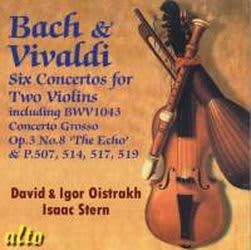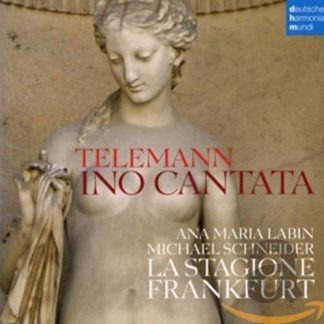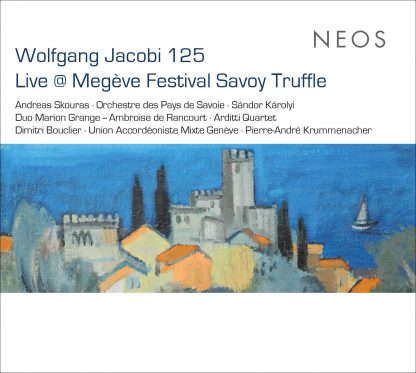Περιγραφή
Καλλιτέχνες
|
WOLFGANG JACOBI – A MODERN CLASSICAL COMPOSER In 1958 musicologist Erich Valentin wrote about Wolfgang Jacobi’s oeuvre: “Jacobi has not composed much, nor does he write quickly. Every work provides evidence of the care taken during its creation, the sense of responsibility shown towards every note and rest, the self-critical aversion to […] the superfluous and the exiguous”. And Jacobi did indeed work meticulously: he was a composer who set high standards for himself and a person who lived his life modestly and honestly. By the time of his death his musical output included around 200 compositions, of which only about half survive. Many of his early works were lost during the Second World War; others did not satisfy Jacobi’s subsequent self-critical review and were destroyed. What remains bears testimony to his consummate skill, artistic power of expression and distinctive style. Jacobi’s love of music was instilled in him from early childhood. On 25 October 1894, Karl Theodor Franz Wolfgang Jacobi was born into an educated family in Bergen on the Baltic island of Rügen, where he grew up in a stimulating musical and cultural environment. Jacobi did not decide to make music his profession until he was serving in the army during the First World War. He developed tuberculosis while a prisoner of war in France and was sent to a sanatorium in Davos, Switzerland in 1917. There he heard music by Ravel and Debussy and was so impressed that he began to compose himself. After the war, Jacobi went to Berlin and studied composition at the Music Academy until 1922. He was then given a post at the Berlin Klindworth-Scharwenka Conservatory, where he taught music theory. He composed a good deal, worked part-time for the “Berliner Funkstunde” and began to make a name for himself with his compositions. His first major success came with his Concerto for Harpsichord and Orchestra. “My special fondness for Baroque music and for the harpsichord inspired me to compose a work in the neo-classical style typical of the late 1920s”, he wrote later. Originally entitled “Concertino for Harpsichord and Chamber Orchestra”, the work was completed in 1927 and premiered at Berlin’s Alhambra cinema the following year by a cinema chamber orchestra conducted by Paul Dessau with Eigel Kruttge as soloist. Two years later, at the “Tonkünstlertagung” (Musicians’ Conference) in Dresden, it was performed in an important concert by the Dresden Philharmonic Orchestra conducted by Paul Scheinpflug with well-known guests in the audience. In 1947 Jacobi revised this early version of the three-movement work mostly by making changes to the orchestration. A reviewer wrote of the 1949 premiere of the new version: “Wolfgang Jacobi’s Concerto for Harpsichord and Orchestra was highly captivating due to its light, playful elegance and imaginative musical agility, which did perfect and complete justice to the nature of the instrument, also in this modern virtuoso form.” Jacobi had thus made a promising start to his career. But with the seizure of power by the National Socialists in 1933 everything changed. The Hitler regime imposed a ban forbidding the composer to work as a musician and prohibiting performances of his compositions, which remained in place until 1945. Jacobi had fallen into disfavor with the Nazis for two reasons: he had composed for the workers’ choir movement, and his father was of Jewish ancestry. For twelve years, he was forced to set composing aside. Jacobi found a temporary new home with his wife and two children in Italy. For a time he was able to put his troubles behind him in the small quiet town of Malcesine on Lake Garda. He took a strong interest in the culture of the country and became deeply attached to Italy. His place of refuge became a significant source of inspiration to him, as many of his later compositions were to show, for instance his Italian Songs for soprano and piano of 1954. Here, as in many other vocal works, he set Italian texts because he had developed a special affinity with the language, in which he was perfectly fluent. Jacobi’s song settings Il Gelsomino tra le labbra and Rapita Europa by the poets d’Incerto and Antonio Bruni are convincing due their clarity, grace, and sensitive compositional style. Jacobi would have liked to have settled permanently in Italy, but the Nazis’ currency export prohibition forced the family to return to Germany in 1935, when they moved to Munich. Wolfgang Jacobi lived as a banned composer in what was called “inner emigration”, until in 1945 he was finally able to resume his life as a musician. He was given a part-time post and subsequently a professorship at the University of Music and Performing Arts in Munich. He became an active member of a number of music associations and organizations, thus contributing to rebuilding cultural life in post-war Munich. Still affected by the atrocities committed by the Nazi regime, he began his artistic life anew and composed many new works. Among them is Music for String Orchestra or String Quartet. In 1948 the first version of the work was entitled String Quartet, which critics described as a moving work bearing testimony to and “clearly infused with the tensions of the present time”. The five-movement work is surprisingly wide-ranging and imaginative, at times impulsive and strongly rhythmical to then become magically delicate and even moving. In 1952 Jacobi revised the Quartet for string orchestra, dedicating the new version to conductor Alessandro Derevitzky, who later performed the work in Argentina. Although Jacobi celebrated many successes and his works were performed far beyond the borders of Germany, a decisive artistic breakthrough never occurred. His music, influenced by composers such as Debussy, Hindemith, Reger and Bartók, was too far removed from the avant-garde of the 1950s and 1960s. However, he was given high praise by accordionists. When he was about 60 years old, Wolfgang Jacobi had discovered the accordion for his music and was a pioneering force in composing sophisticated works for an instrument which until then had generally been viewed as suitable only for folk music. One of these works is his virtuoso Concertino for Accordion and Accordion Orchestra, Serenade and Allegro from 1958, of which there is also a version for chamber orchestra. Jacobi chose to use a one-movement sonata form with a slow introduction for the concerto, explaining that: “The introduction is in the style of a Serenade with an expressive, elegiac melody, the Allegro a tempestuous movement with jazz elements.” Jacobi became famous and was praised for his accordion works, and has always been well-known among accordionists. However, after his death in 1972 many of his other compositions were forgotten until a number of very different initiatives led to their rediscovery. The works on this CD were performed and (with the exception of the String Quartet) recorded at the Megève Festival Savoy Truffle. The CD is being released to mark the occasion of Wolfgang Jacobi’s 125th birthday in 2019. Barbara Kienscherf Translation: Matthew Harris |










